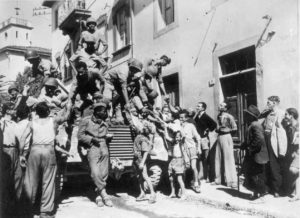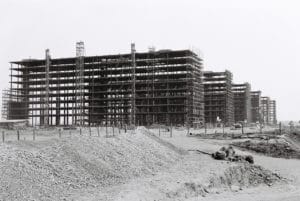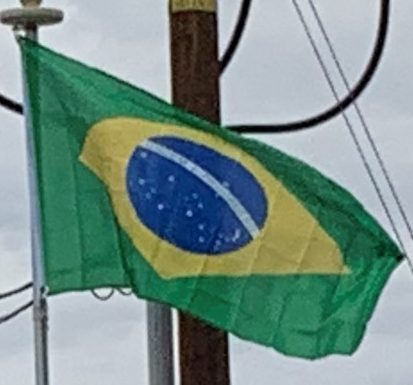If in relation to its foreign policy, the country in this first republican period maintained a relative balance characterized by a success in resolving border disputes with neighboring countries, only broken by the Acre War (1899–1902) and its involvement in World War I (1914–1918), followed by a failed attempt to exert a prominent role in the League of Nations; Internally, from the crisis of Encilhamento and the Armada Revolts, a prolonged cycle of financial, political and social instability began until the 1920s, keeping the country besieged by various rebellions, both civilian and military.
Little by little, a cycle of general instability sparked by these crises undermined the regime to such an extent, that in the wake of the murder of his running mate, the defeated opposition presidential candidate Getúlio Vargas supported by most of the military, successfully led the October 1930 Coup. Vargas and the military were supposed to assume power temporarily, but instead closed the Congress, extinguished the Constitution, ruled with emergency powers and replaced the states’ governors with their own supporters.
In the 1930s, three failed attempts to remove Vargas and his supporters from power occurred. The first was the Constitutionalist Revolution in 1932, led by the Paulista oligarchy. The second was a Communist uprising in November 1935, and the last one a putsch attempt by local fascists in May 1938. The 1935 uprising created a security crisis in which the Congress transferred more power to the executive. The 1937 coup d’état resulted in the cancellation of the 1938 election, formalized Vargas as dictator, beginning the Estado Novo era, which was noted for government brutality and censorship of the press.

Foreign policy during Vargas years was marked by the antecedents and World War II. Brazil remained neutral until August 1942, when the country entered on the allied side, after suffering retaliation by Nazi Germany and Fascist Italy, in a strategic dispute over the South Atlantic. In addition to its participation in the battle of the Atlantic, Brazil also sent an expeditionary force to fight in the Italian campaign.
With the Allied victory in 1945 and the end of the Nazi-fascist regimes in Europe, Vargas’s position became unsustainable and he was swiftly overthrown in another military coup, with democracy “reinstated” by the same army that had ended it 15 years earlier. Vargas committed suicide in August 1954 amid a political crisis, after having returned to power by election in 1950.
Contemporary Era:
Several brief interim governments followed Vargas’s suicide. Juscelino Kubitschek became president in 1956 and assumed a conciliatory posture towards the political opposition that allowed him to govern without major crises. The economy and industrial sector grew remarkably, but his greatest achievement was the construction of the new capital city of Brasília, inaugurated in 1960.

Kubitschek’s successor, Jânio Quadros, resigned in 1961 less than a year after taking office. His vice-president, João Goulart, assumed the presidency, but aroused strong political opposition and was deposed in April 1964 by a coup that resulted in a military regime.
